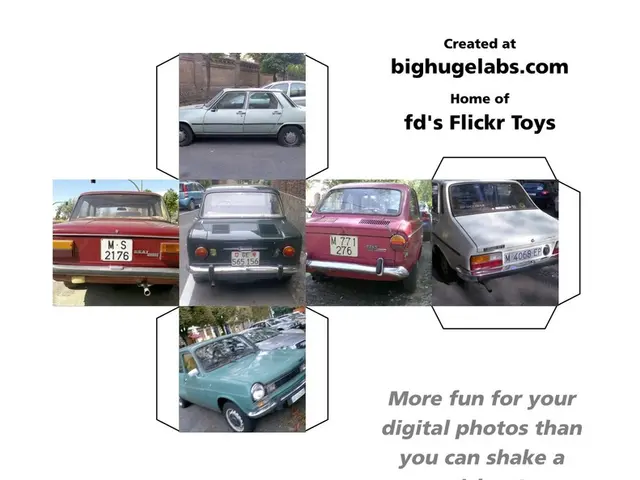The Cleanest and Dirtiest Motors on Germany's Roads: An Insight on Car Exhaust Emissions
Germany's Cleanest and Dirtiest Vehicles Hitting the Roads - Germany's Cleanest and Dirtiest Vehicles on Roadways
Get the lowdown on the cleanliness of vehicles zipping around German roads! According to an exhaustive analysis by news agency dpa based on data from the Federal Motor Transport Authority (KBA), the degree of antiquated exhaust technology varies drastically among registration districts. From having a third of vehicles sporting outdated standards to just one tenth, it's a significant spread. Moreover, there's a noticeable disparity among the cleanest cars as well.
The Lower Saxony district of Lüchow-Dannenberg takes the prize for the highest proportion of vehicles that adhere to the antiquated Euro 1 to Euro 4 emission standards, accounting for an eye-opening 33.7%. Not too far behind are the Elbe-Elster and Duisburg districts, with 31.7% and 30.7% respectively. Emmendingen, Nienburg, Gelsenkirchen city, Spree-Neiße, Herne city, and Görlitz are no slouches either, with values surpassing 30%.
The picture couldn't be more different in Wolfsburg, chiming in at a mere 10.9%, followed closely by Wiesbaden at 15.4%. Suhl, Munich district, and city trail slightly behind with values of 15.9, 16.1, and 17.8 respectively. оба Wolfsburg and Munich, major car manufacturing hubs, have a clear edge over other regions, boasting large numbers of relatively new self-registrations and company cars that skew the results in favor of cleaner motors.
It's not always the case that a vehicle is driven in the district where it is registered, especially in Wolfsburg, the home of VW, where the per capita car count overshoots one vehicle for every adult, standing at a staggering 973 cars for every 1,000 residents!
As a result, car-centric towns are leading the way in terms of cleaner vehicles. By considering the proportion of purely electric vehicles and vehicles meeting the Euro 6 emission standard, Wolfsburg shines with a whopping 77.2%, followed by Wiesbaden with a commendable 70.6%. Munich city and district rank third and fourth with 64.8% and 64% respectively, edging out Main-Taunus district and the headquarters of Audi and Mercedes, Ingolstadt and Stuttgart, which clock in the low sixties. In certain instances, income may also be a determining factor, as wealthier areas tend to purchase newer and thereby cleaner automobiles.
- Motors
- Exhaust Emissions
- Germany
- Wolfsburg
- Munich
- Vehicle
- Wiesbaden
- Federal Motor Transport Authority
- KBA
- Duisburg
Insights:- Wolfsburg, Germany, is known for its cleanest motors in terms of exhaust emissions, thanks to several factors: 1. The high proportion of purely electric vehicles (77.2%) and Euro 6 emissions compliant vehicles ensures fewer pollutants released. 2. Its association with Volkswagen offers an advantage, as the company invests in newer, cleaner technologies. 3. Wealthier areas, like Wolfsburg, tend to purchase newer vehicles that comply with stricter emissions standards. 4. The city's focus on renewable energy and electrification underpins an environmentally friendly automotive atmosphere, as Volkswagen's initiatives contribute to the area's cleanliness.
- The city of Wolfsburg, renowned for its strong association with Volkswagen, boasts the cleanest motors in Germany, as evident by the high proportion (77.2%) of purely electric vehicles and Euro 6 emissions compliant vehicles in the area.
- The cleanliness of motors in Wolfsburg can be attributed to several factors, including investment in newer, cleaner technologies by the automotive industry and the city's focus on renewable energy and electrification.
- Wealthier areas like Wolfsburg tend to purchase newer vehicles, ensuring compliance with stricter emissions standards, which contributes to the city's reputation for having cleaner motors.
- The Federal Motor Transport Authority (KBA)'s data indicates that Wolfsburg significantly outperforms other German regions in terms of exhaust emission standards, with fewer antiquated motors compared to places like Duisburg, Elbe-Elster, and Lüchow-Dannenberg.








